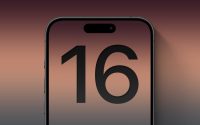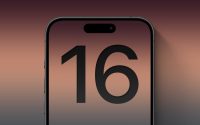How Random Is the iPod’s Shuffle?
 Mads Haahr, a random number enthusiast, Dublin Trinity College lecturer, and keeper of website random.org, intends to answer the question: Does the shuffle function really play users’ songs in random order?
Mads Haahr, a random number enthusiast, Dublin Trinity College lecturer, and keeper of website random.org, intends to answer the question: Does the shuffle function really play users’ songs in random order?
Well first we’d have to talk about what really makes a string of numbers random. A definition of random if you will.
Let’s say we have a group of songs numbered one to ten. A random sequence must contain each number in equal frequency, so that none of your songs plays much more than any other song in the long run. Obviously if follows that it should be impossible to predict which number (what song), comes next. Song number seven can’t always follow song number four.
Plenty of sequences pass one test but not the other. For example the sequence 1 2 3 4 5 6 7 8 9 10 1 2 3 4 5… isn’t considered random because it passes the first test, but not the second. Two always follows one, three always follows two and so on. If say you shuffle that sequence, and then add in a few threes at different intervals, well it passes the second test, but not the first test.
Get the picture? Click “Full Article” to read the entire post.
 Mads Haahr, a random number enthusiast, Dublin Trinity College lecturer, and keeper of website random.org, intends to answer the question: Does the shuffle function really play users’ songs in random order?
Mads Haahr, a random number enthusiast, Dublin Trinity College lecturer, and keeper of website random.org, intends to answer the question: Does the shuffle function really play users’ songs in random order?
Well first we’d have to talk about what really makes a string of numbers random. A definition of random if you will.
Let’s say we have a group of songs numbered one to ten. A random sequence must contain each number in equal frequency, so that none of your songs plays much more than any other song in the long run. Obviously if follows that it should be impossible to predict which number (what song), comes next. Song number seven can’t always follow song number four.
Plenty of sequences pass one test but not the other. For example the sequence 1 2 3 4 5 6 7 8 9 10 1 2 3 4 5… isn’t considered random because it passes the first test, but not the second. Two always follows one, three always follows two and so on. If say you shuffle that sequence, and then add in a few threes at different intervals, well it passes the second test, but not the first test.
Get the picture?
Computer programs can be used to generate a sequence that looks random, but the sequence can never be truly random. That’s because the program must use some algorithm to go from one number to the next. Find the algorithm, and you find the next number. Encryption tools, anyone?
The plan to test the iPod would be to record a whole ton of brief sound files, then, connect the iPod’s output to a computer, use software that can recognize the tones, and record which “songs” played during what time. Run the iPod long enough to generate a long enough sequence, and then check to see if that sequence is random. If it’s a really, really bad random number generator, you could probably figure the algorithm out if you ran your playlist 100 times. If it’s only a tiny bit off, you might need to run your playlist thousands or hundreds of thousands of times.
It’s a number lover thing. If you want to get an idea of into it they really are, consider the fact that Mads Haahr ordered a customized iPod with “God Plays Dice” engraved on its back.
Buy: [Apple iPod Shuffle]



